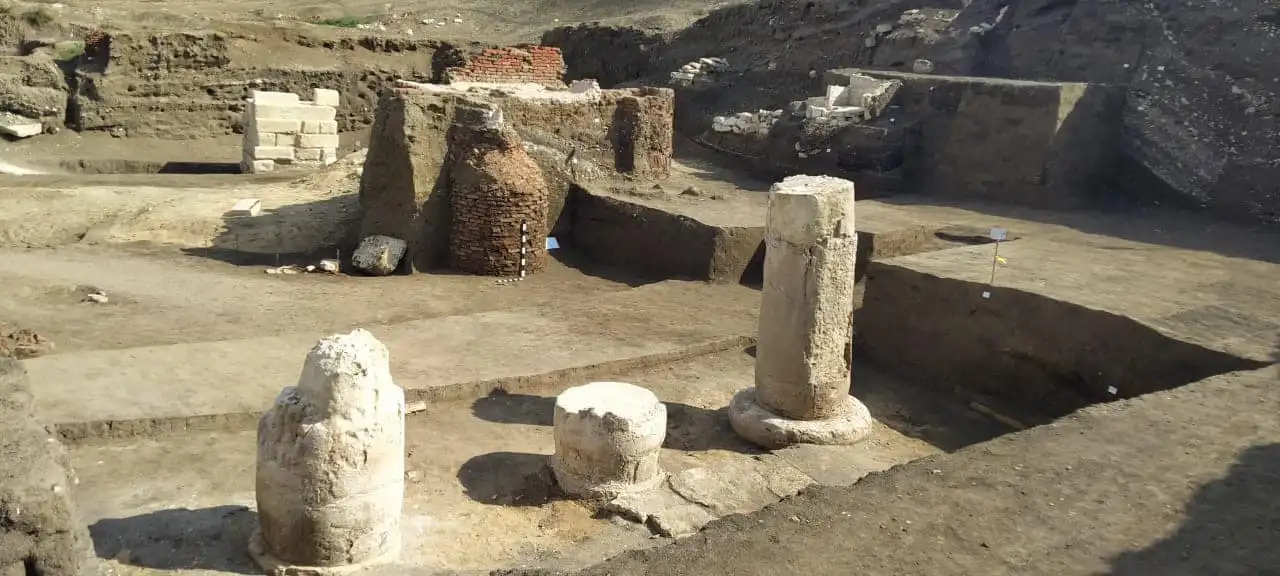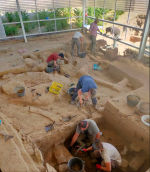
Archaeologists have uncovered the remains of a temple in the ancient Egyptian city of Tell El Fara’in, whose name translates to “hill of the Pharaohs.”
The remains were uncovered during the excavation of a site approximately 21 feet by 15 feet that revealed a small portion of the sacred temple, which was dedicated to the goddess Wadjet, the matron protector of Lower Egypt. At one point, the temple complex spanned 11 acres.
Among the remains are three limestone columns that may have been a part of a long hall of pillars in the temple, along with numerous artifacts, including engraved pieces of stone, religious pottery, and other ceramics.
Also uncovered was a limestone painting of a bird’s head with a white crown surrounded by the feathers, which, according to a press release byEgypt’s Ministry of Tourism and Antiquity(MTA) posted to Facebook, is believed to represent the goddess Nakhbet or the goddess Mutt.
The site is in the Nile Delta, 59 miles from Alexandria in Egypt’s Kafr El-Sheikh Governorate. In classical Greece, the city was known as Buto, a name derived from the Egyptian Per-Wadjet.
The last excavation of the site uncovered a “huge stone building a number of ritual and daily religious rites in the temple, a fascinating collection of ivory illustrations and some important gold discoveries, as well as hieroglyphic paintings,” according to the MTA press release.
Dr. Hossam Ghanim, general director of Kafr El-Sheikh and head of the archaeological mission, stated that the mission is continuing its excavation work on the site, with the hope of “uncovering more secrets” of the region, according to the MTA.

